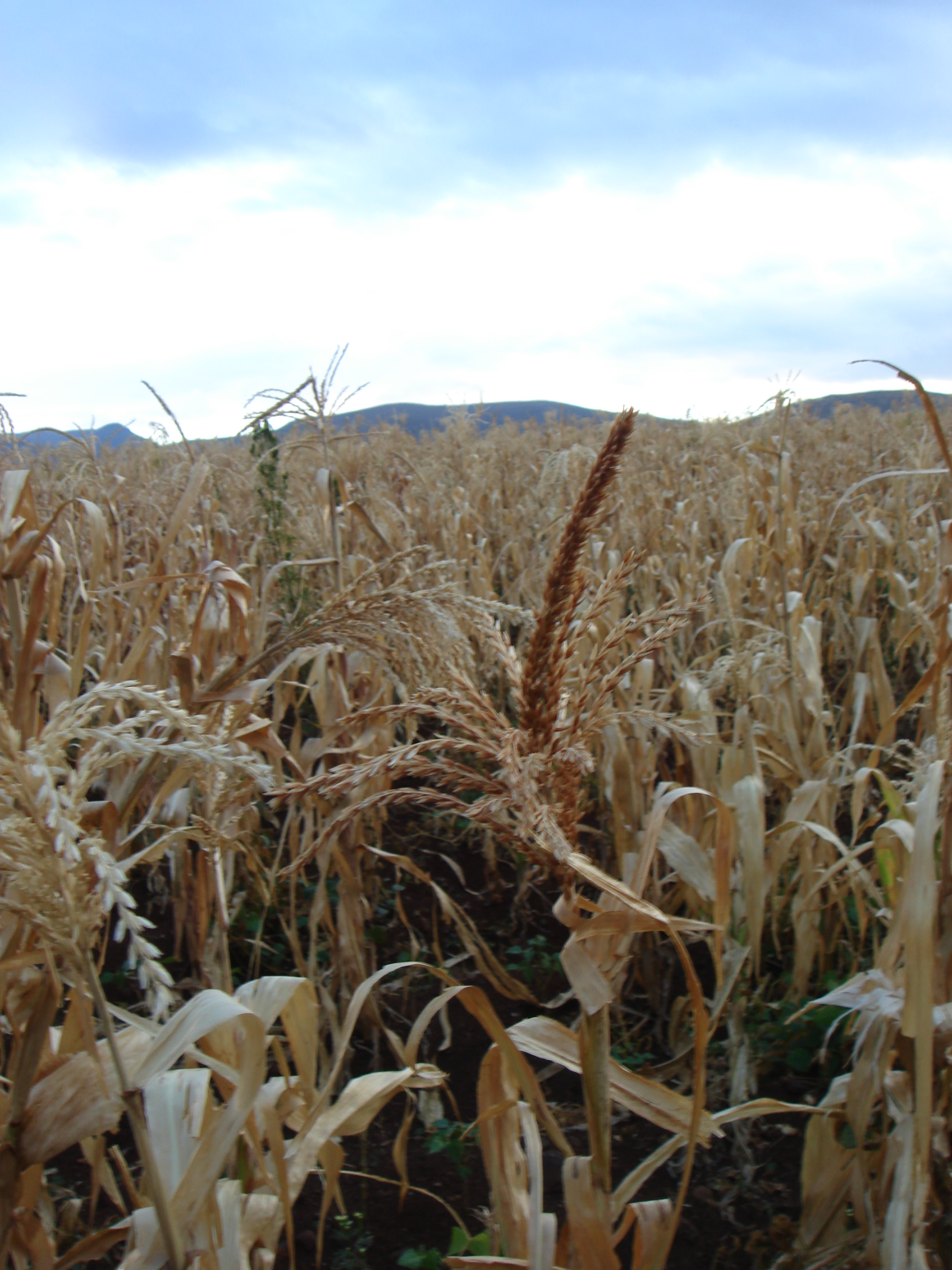As global production of biofuel rapidly expands, experts debate whether burning food to fuel vehicles may divert edible crops into fuel-making and raise prices, especially in developing countries already struggling to feed their poor.
"The competition for grain between the world's 800 million motorists, who want to maintain their mobility, and its two billion poorest people, who are simply trying to survive, is emerging as an epic issue," said Lester Brown, president of the Earth Policy Institute (EPI), a US-based NGO focused on creating an environmentally sustainable economy.
A three-day UN Food and Agricultural Organisation (FAO) meeting in Rome last week brought prominent international experts together to assess the consequences of large-scale bioenergy production for worldwide food security and biodiversity.
"Bioenergy holds out enormous opportunities for farmers, especially in the developing world - but there are dangers too, and we want to be very clear about them," said Gustavo Best, FAO Senior Energy Coordinator.
In a statement released on Monday, drawing on lessons learnt during the meeting, Alexander Müller, Head of FAO's Natural Resources Management and Environment Department, commented: "It was the first time that experts in bioenergy, food security and the environment came together to discuss the important linkages between those sectors.
"While there is legitimate concern among some groups that bioenergy could compromise food security and cause environmental damage, it can also be an important tool for improving the well-being of rural people if governments take into account environmental and food security concerns."
Food prices pegged on oil
As fossil fuel prices continue to rise and environmental concerns mount, the international debate has centred on the implications of more and more resources going into biofuel production at the expense of food production.
Climbing oil prices mean it has become increasingly profitable to convert farmland to produce fuel for vehicles, and the expanding demand for biofuels such as biodiesel and ethanol - produced from crops like maize and sugarcane - has already sent international maize prices rocketing.
The diversion of an ever-larger proportion of maize - the world's leading grain crop - into fuel production will affect food prices everywhere. The world price of wheat and rice are also projected to rise.
"The escalating share of the United States (US) grain harvest going to ethanol distilleries is driving up food prices worldwide," warned Brown. The US provides around 70 percent of the world's maize exports.
Brazil, the US and Western Europe are currently the main producers of crop-based fuel. The EPI puts production by the US and Brazil at over 16 billion liters of ethanol each in 2005. Brazil, the world's largest sugar producer and exporter, is now converting half its sugar harvest into ethanol fuel.
But just 10 percent of the global sugar harvest going into ethanol has caused the price of sugar to double. Last year the European Union (EU) produced over 27 billion litres of biofuels - more than half of it from vegetable oil.
A target has been set to replace 10 percent of the fossil fuels used for transport in the EU with biofuels by 2020, so demand for biofuel source crops is expected to increase. In Asia, China and India are both building ethanol distilleries.
Investment in crop-based fuel production, once largely dependent on government subsidies, is now driven by the price of oil: as the price of oil climbs, so will the price of food, Brown explained.
According to the latest brief from Wahenga, a food security nongovernmental organisation (NGO) in South Africa, "food prices can be expected to rise for two reasons - the higher cost of producing it [modern agriculture is highly fuel intensive] and because the surpluses, which have had the effect of depressing the world price of grain, have been removed from the market to be converted to motor fuel."
"The rebalancing of the food prices in relation to the price of energy is likely to cause severe social distress," the Wahenga report commented.
Boom or bust
World hunger and international commodity prices are complex issues, and the relationship between them even more so. Rapid bioenergy development will bring an additional uncertainty to already volatile global markets for both oil and food commodities.
Joseph Schmidhuber, Senior Economist at FAO's Agricultural Development and Economics Division, explained that the impact of the new bioenergy market on food security could be negative or positive, depending on whether a country's economy was a net exporter or importer of food and energy. The same held true at household level, indicating that the rural landless and the urban poor were most at risk, and special measures would be needed to protect both countries and groups.
The FAO's Müller maintained that "In food security terms, bioenergy only makes sense [can be positive] if we know where the food-insecure populations are located and what they need to improve their livelihoods," adding that there was a need for an "international commitment to make sure that food security is not impaired and that natural resources are used sustainably."
Some observers have warned that the biofuel boom could also affect food aid. The US is the world's largest donor of food aid, contributing an average of six million tonnes of cereal food aid annually since 1970. But now, as US farmers start selling more harvests to the ethanol production market, food aid contributions may start declining. "Rising food prices will reduce their [food aid agencies] capacity to provide food assistance", Brown said.
"The world desperately needs a strategy to deal with the emerging food-fuel battle," he concluded.
tdm/he/jk/bp
This article was produced by IRIN News while it was part of the United Nations Office for the Coordination of Humanitarian Affairs. Please send queries on copyright or liability to the UN. For more information: https://shop.un.org/rights-permissions





